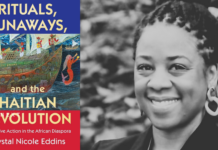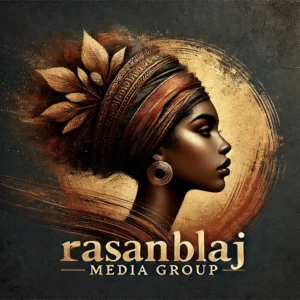My wife is in transit, crossing borders, navigating spaces that recognize her, and spaces that do not. She sends me a text from the gate—one foot in Miami, the other on a flight to Cameroon. “We left Miami late… got to my gate late, and they were about to close the door. They waited for me! Either the blue passport or the name Jean-Baptiste helped me! Lol.“
She is playing, but she is not playing.
“Knowing the French, it wouldn’t have been the same deference with a green passport and a ‘tribal’ name,” she continues. And then, “They asked the name. I gave it to them, and they probably thought I was one of them! Or at least related to one of them. French women don’t take their husband’s name.“
Empire leaves marks. It stamps its presence into the very air we breathe, into the way names fall from tongues, into the split-second decisions of an Air France gate agent who, in that moment, must decide whether my wife is the type of traveler to be accommodated—or the type to be dismissed.
My mind drifts to shibboleth, the ancient marker of who belongs and who does not. The word, from the Old Testament, was once a test of pronunciation, a password through which life or death was decided. And here we are, centuries later, still speaking in codes.
My wife is not wrong. I have seen it firsthand. I have watched her move through the machinery of the French bureaucracy before she carried my last name, before she held an American passport. I have stood beside her at a ticket counter, at a visa office, in front of some bored, underpaid clerk in Paris, and I have seen the shift. I step forward, say my name, let my accent unfurl, and suddenly the doors open. The Louvre clerk becomes warm, helpful. The process that had been tedious for her alone is suddenly smooth.
But power shifts when the borders change.
Later, after marriage, after citizenship, when she walks into the Cameroonian embassy with an American passport, the dynamic reverses. The clerk, upon seeing her blue book, shifts his tone—speaks to her in French, eases into something softer, less formal, as if speaking to a peer, an aspirational mirror. One even asks if she has forgotten her French, as if the passport itself suggests an amnesia of identity.
She knows how to navigate these spaces. Sometimes, she “pimps me out” to the clerks—lets me do the talking, lets them see what they want to see. I asked once why it worked so well. She smiled, Because you represent so much of what they aspire to—tall, good-looking (her words, not mine), American, which means they think you must have money.
To me, it is something even deeper. It is not just the promise of wealth, but the fantasy of movement—the longing to step beyond the gatekeeping, to exist beyond the smallness imposed by borders. No different from a girl in rural America dreaming of a life in a bigger city, away from the town where she was born. The colonial gatekeeping is fierce. The architecture of empire, even fiercer.
And so my wife continues her journey, carrying the name Jean-Baptiste, carrying the blue passport, carrying the knowledge that passage is rarely just about travel. It is about how well you navigate the maze. About knowing when to present the right shibboleth. About knowing which doors will close, and which ones will wait just a little longer.



